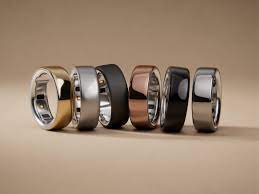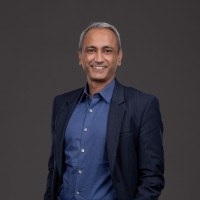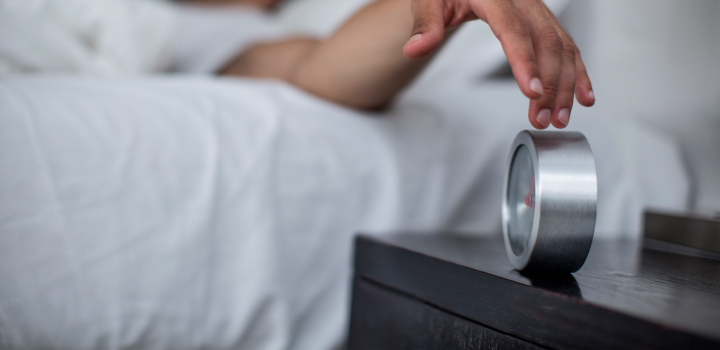Sleep is integral to our longevity – after all, we spend nearly a third of our lives sleeping, so why is it so underestimated and, sadly, poorly implemented? To help us better prioritize our sleep, Discovery, a global financial services company founded in South Africa in 1992 by Adrian Gore, has released a groundbreaking report that will help us sleep better.
Discovery’s Sleep Study
The Discovery three-year sleep study features over 100,000 participants and more than 45 million nights of sleep data, and with it, the financial services company has established a definitive and concerning link between sleep quality and our longevity.
“If you sleep poorly, it increases your risk of death by 22%.” – Dinesh Govender, CEO of Discovery Vitality South Africa
With the findings proving that good sleep isn’t just optional, but essential for good health, Govender shares that it’s cemented sleep as the third core pillar, alongside exercise and nutrition, in the company’s Vitality model. The model, which combines clinical data and behavioral science, is a point-based system that incentivizes members to make healthier choices by rewarding them with a range of prizes, which include discounts on flights, movies, groceries, and gym memberships.
The Science of Sleep

Associate Professor Nadine Rampf
Echoing the importance of sleep is Associate Professor Nadine Rampf, who is also a sleep scientist at Stellenbosch University.
“If we didn’t need sleep, we would be able to go without it for days and feel no consequences,” she shares, adding that sleep impacts every single system within the body, and there’s not one system that would be spared from sleep deprivation.
“It’s got implications for your cognitive functioning, your cardiac performance, your cardiac health, your metabolic regulations, and the immune system. So literally every single system that makes up the human body is affected to some degree by sleep deprivation.”
How Much Sleep Is Enough?
Yes, it’s important to get enough hours of sleep, but that’s only part of it, as how well you sleep is also vital.
It’s not just adults that aren’t getting enough sleep, as Dr. Rampf’s latest research unpacks how many children aren’t getting the sleep they need, either, often waking multiple times per night. Sadly, this level of sleep deprivation during developmental years can have serious long-term impacts on their development, behavior, and learning,
“Parents think that their kids are getting the right amount of sleep for their age, but in fact, they are not meeting sleep recommendations for their age.”
Moreover, Dr. Rampf shares that it’s not only humans who can either struggle or bloom, depending on their sleep quality, thus underscoring how environmental factors may influence sleep habits.
“Elephants in captivity sleep for much longer than their counterparts in the wild because in captivity, they don’t have to worry about predators, and they’re getting a diet that is high in calories.”
What’s Wrecking Our Sleep?
According to Dr. Rampf, if you are waking up feeling groggy, have mental fog, or have issues with your health, then you may need to look at your sleep quality.
“There are multiple reasons why we might be waking up multiple times during the night, or if we struggle to fall asleep at the start of the night.”
These reasons may include:
- Stress: With high rates of burnout, stress, and anxiety, this may influence how well we’re sleeping at night.
- Irregular Schedules: Referring to it as ‘social jet lag’, Rampf explains how changing our sleep schedules over the weekend, despite having a regular bedtime and wake time during the week, can shift our internal clock.
- Alcohol: Both Dr. Rampf and Govender agree that while alcohol can definitely help you fall asleep faster, it has serious implications for your sleep quality.
Am I Sleep-Sick?
Yes, it is normal and common to experience poor sleep occasionally, but there are some instances where one may need medical attention, and these can include:
- Chronic Insomnia: Per Dr. Rampf, there needs to be at least three times a week that you’re having problems falling asleep or staying asleep, and this needs to happen consistently for a period of three months.
- Obstructive Sleep Apnea (OSA): Rampf explains that throughout the night, one may have periods where there are dips in their oxygen levels. This may prevent you from entering deeper stages of sleep, and you may have multiple arousals, which will then impact your sleep quality.
- Restless Leg Syndrome (RLS): A proper clinical sleep disorder, RLS typically has a genetic component to it, and can be quite difficult to manage. Regarding treatment, Rampf explains that one would need to test their iron levels, as most times, low iron levels may exacerbate the restless feeling in the legs.
Turning Sleep into Discovery Sleep Rewards
In response to its findings and the importance of healthy sleep, Discovery South Africa launched their Vitality Sleep Rewards.
It will roll out across 14 international markets, including the UK, China, and Japan. It will help transform sleep behavior through their use of incentives and smart technology.

In fact, the company has recently partnered with ŌURA – the leading sleep, fitness, and health tracking ring – to help members track their sleep quality in real time.
CEO of ŌURA, Tom Hale, commented, “At ŌURA, we believe that health should be a daily practice. That’s why our partnership with Discovery Vitality is such a natural fit.”
As the ring is quite cost-intensive, Discovery South Africa is fully subsidizing it for members who meet their monthly sleep goals, with rewards including coffee vouchers and fitness gear.
Together, we’re bringing science-backed, personalised insights to millions of Discovery Vitality members across South Africa to take control of their sleep, recovery, and overall wellbeing.”
Discovery leads wellness innovation
As their model thrives on ethical, data-driven personalization, it’s clear that Discovery is working hard to ensure that their members eat, sleep, and live better, which can lead to a healthier society.
“We’re not penalizing bad sleep, we’re rewarding good habits. It’s about positive reinforcement.” – Dinesh Govender
 In fact, it’s this type of sleep data that has allowed Govender to improve his own sleep habits,
In fact, it’s this type of sleep data that has allowed Govender to improve his own sleep habits,
“I used to work out late at night, thinking it would help me sleep. But the data said otherwise,” he reveals, “Now, I don’t eat or exercise after 7 p.m. and stick to a bedtime. It’s made a massive difference.”
Vitality Sleep Rewards: A world-first shifting health outcomes
Ten years ago, Vitality Active Rewards inspired healthier habits for millions worldwide. Building on this success, in 2026 Vitality introduces Vitality Sleep Rewards – incentivizing members to improve sleep duration, regularity and quality.
Members receive dynamic weekly sleep goals tailored to their individual patterns. Their nightly Vitality Sleep Score, calculated using clinically validated metrics, accumulates toward weekly goals. Meeting goals earns Discovery Miles or partner rewards.
Apart from the new ŌURA Ring 4, sleep tracking will work via Apple, Garmin, Samsung devices, and the in-app Vitality Sleep Tracker.
Discovery Health: Sleep integrated into Personal Health Pathways
From 2026, sleep embeds into Personal Health Pathways, Discovery Health’s digital platform. Dr Ron Whelan, CEO, explained: “Discovery Health Medical Scheme is the first health insurer globally offering sleep actions and rewards for members.”

Dr Ron Whelan
The platform delivers personalized sleep goals, targeted interventions for sleep disorders, and GP or psychologist consultations for higher-risk members.
Discovery Insure: Sleep linked to safer driving
Discovery Insure data shows sleep quality critically affects accident risk. From 2026, sleep tracking integrates into Vitality Drive. Members earn Sleep Points for quality sleep – unlocking fuel rewards and higher status.
CEO Robert Attwell said: “Sleep quality is as critical in preventing accidents as driver behavior. Vitality Drive’s Sleep Points deepens our commitment to safer drivers.”
A foundational step in preventive healthcare
“By making sleep measurable and incentivized, Discovery unlocks a new health frontier – empowering healthier lives while creating positive impacts for healthcare systems, road safety, and society,” concluded Govender.
Now, with that, Dr. Rampf does urge us to be cautious about our relationship with this type of technology, especially because their data is useful, but not diagnostic.
“People want to have this perfect sleep score, and this can lead to orthosomnia, where people just get so anxious about getting this perfect sleep score that it then backfires and harms their sleep.”
With that, she urges us rather use these trackers as health tools, rather than a way to diagnose our health.
Let’s Get To Sleep
As both Discovery and Dr. Rampf are clear about sleep being a biological necessity for longevity, we must enjoy sleep that’s consistent, uninterrupted, and restorative.
Ultimate Sleep Tips:
- No eating or exercise after 7 PM
- Stick to a consistent bedtime – even on weekends
- Track your sleep to identify patterns, not diagnose
- Have a wind-down routine: 30–60 minutes before bed, unwind and have screen-free time
In closing
Insights shared in ‘The Sleep Factor’ include that people who don’t sleep enough or consistently face a 22% higher risk of death, and significantly increased risks of diabetes, heart disease and depression.
Poor sleep also contributes to employee workplace errors, and around 50% of the impact of sleep on accident risk while driving is due to chronic poor sleep.
A wake up call for better sleep strategies!
Watch the Interviews
Dinesh Govender
View this post on Instagram
Dr. Nadine Rampf
View this post on Instagram
You can also watch more multi-media on the launch here:
- Watch the recording of Discovery’s Sleep Summit (which took place on 7 October 2025)
- Watch Vitality’s video summarizing the insights of The Sleep Factor report.
Main photo credit: Discovery



![women [longevity live]](https://longevitylive.com/wp-content/uploads/2020/01/photo-of-women-walking-down-the-street-1116984-100x100.jpg)










